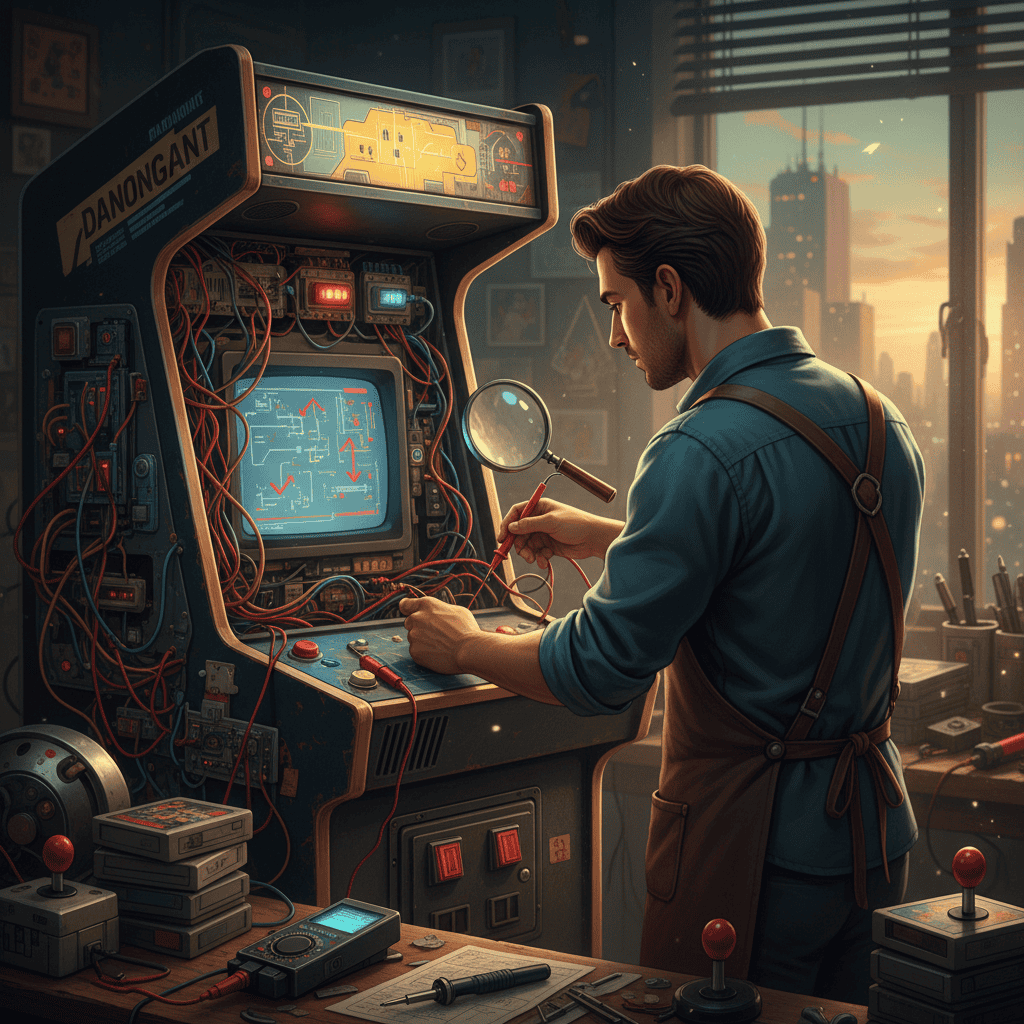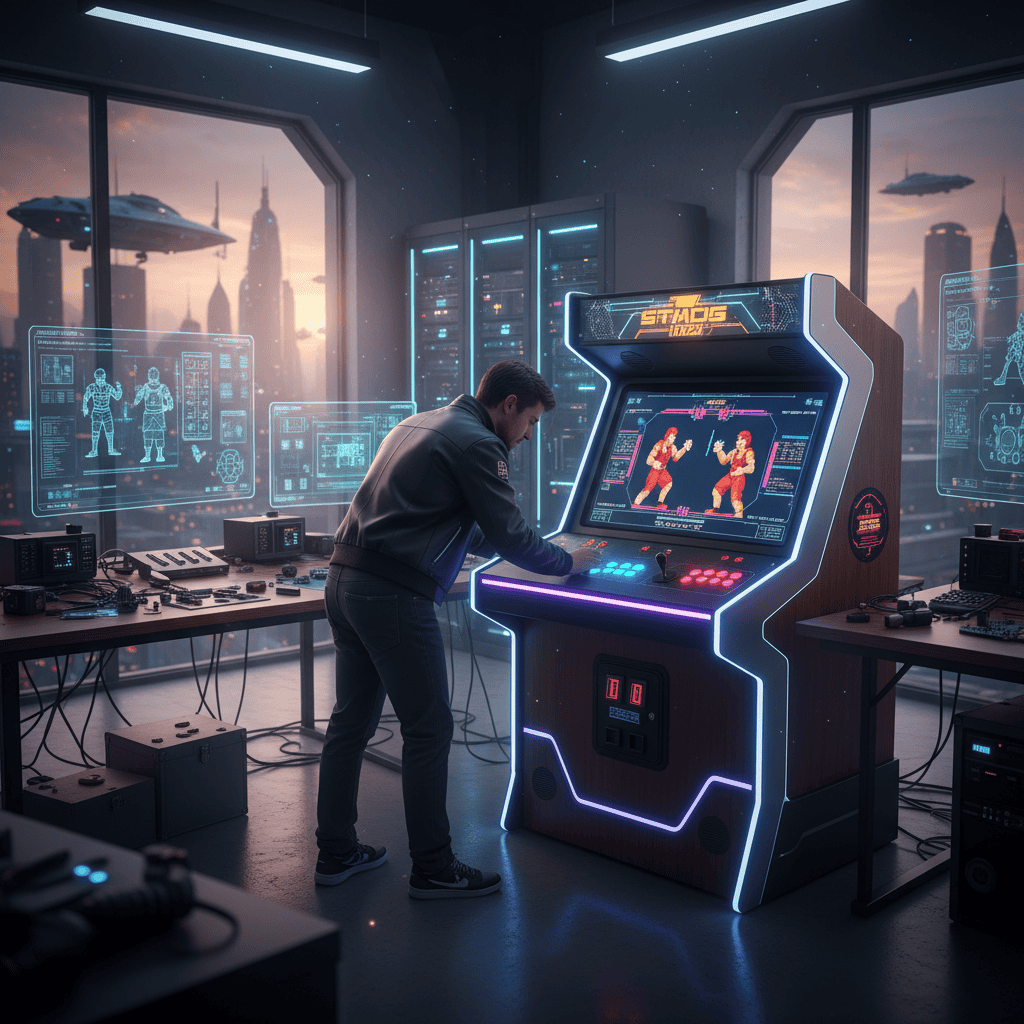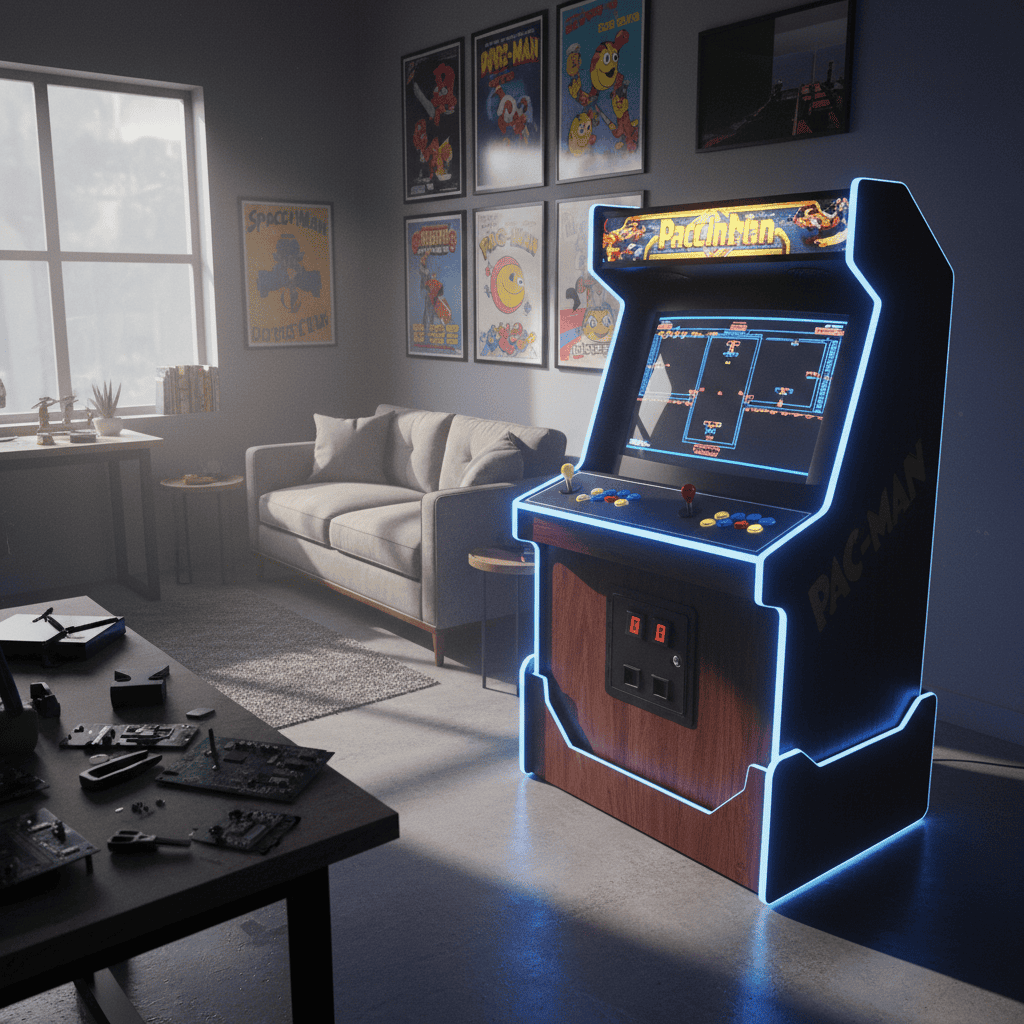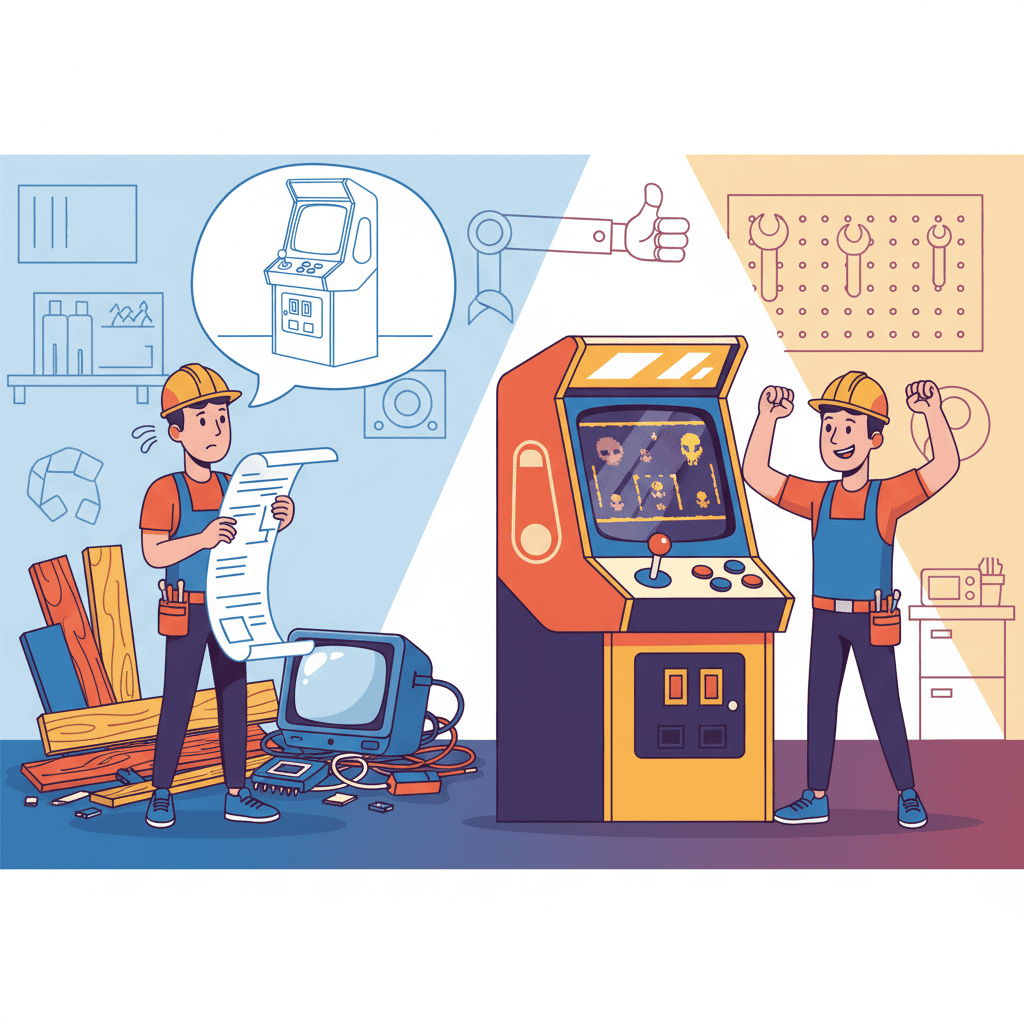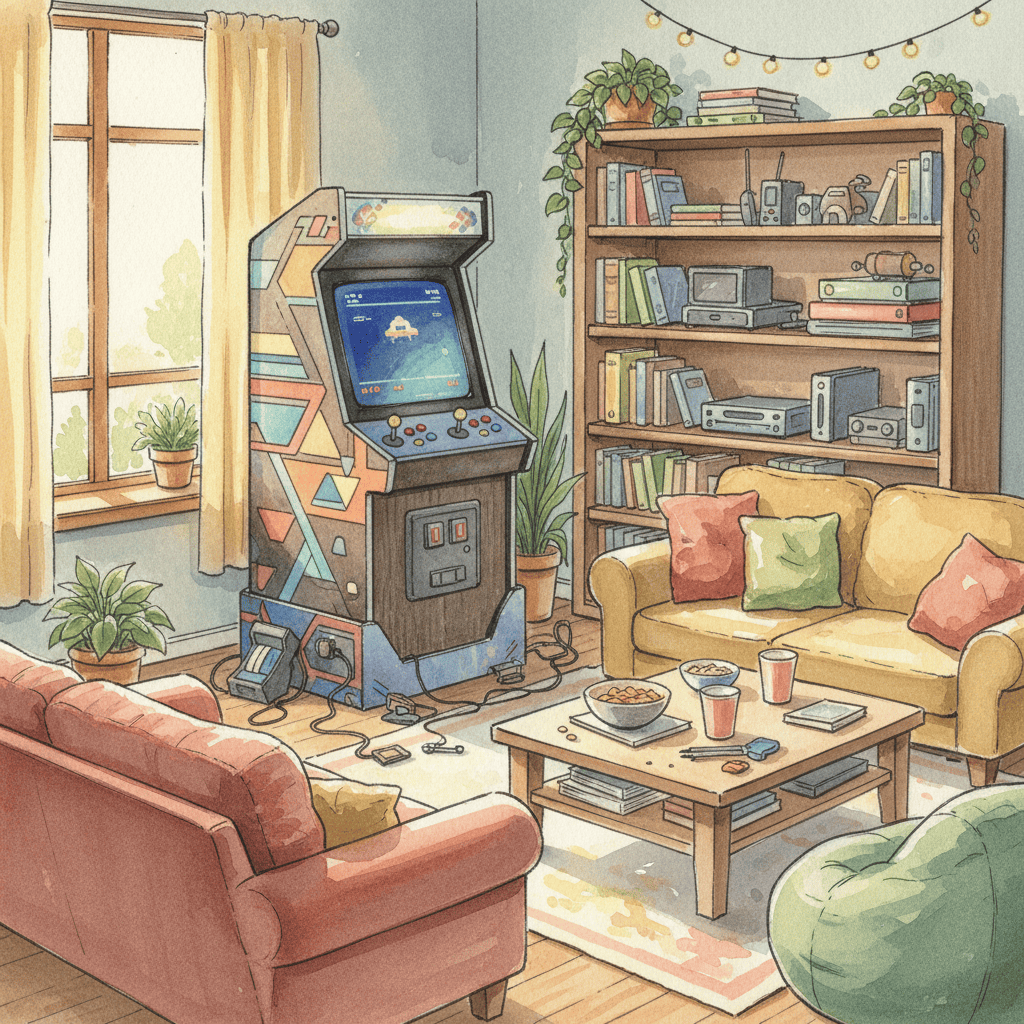The roar of the crowd, the satisfying click of buttons, the vibrant glow of the CRT—these are the hallmarks of the arcade experience. Restoring these iconic machines isn’t just about fixing broken parts; it’s about preserving a piece of gaming history. This guide, born from decades spent amidst flickering screens and joystick jams, will equip you with the knowledge to tackle common problems and breathe new life into your arcade cabinet. We’ll cover everything from simple repairs to more complex cabinet restoration, drawing on practical experience and tested techniques.
Common Arcade Cabinet Problems and Their Solutions
Arcade cabinet repair is often a journey, not a sprint. Knowing what to expect is half the battle. Here are some frequently encountered issues during arcade cabinet restoration:
Power Supply Problems
A non-functional power supply is a common culprit. This can manifest as a completely dead machine or intermittent power failures. Troubleshooting involves checking fuses, inspecting the wiring for loose connections or damage, and potentially replacing components. A multimeter is essential for this part of arcade machine repair.
Faulty Control Panels
The control panel, the heart of player interaction, is vulnerable to wear and tear. Sticky buttons, unresponsive joysticks, and damaged artwork are common complaints. Often, arcade cabinet repair involves cleaning the buttons and joystick contacts, replacing worn parts, and potentially restoring or replacing the overlay artwork. Replacing arcade buttons and joysticks is frequently necessary.
Display Issues
The monitor, whether CRT or LCD, is another critical component. Common problems include burn-in (CRT), backlight failure (LCD), or display distortion. Arcade monitor repair can range from simple adjustments to complex component replacements, requiring specialized knowledge and tools.
Wood and Artwork Restoration
The cabinet itself can suffer from damage over time. Scratches, dents, and peeling paint are frequent issues. Repairing arcade cabinet wood often involves sanding, filling, repainting, and potentially applying protective clear coats. Restoring arcade cabinet artwork might involve painstaking touch-ups, reprinting, or even commissioning a custom reproduction. This aspect of restoring arcade cabinets is arguably the most time-consuming.
A Step-by-Step Guide to Arcade Cabinet Restoration
The process of how to restore an arcade cabinet effectively involves a methodical approach:
- Assessment: Carefully examine the cabinet for damage. Identify all faulty components. Document your findings.
- Disassembly: Systematically disassemble the cabinet, separating the control panel, monitor, power supply, and other internal components. Take detailed photographs throughout this process.
- Cleaning: Thoroughly clean all components using appropriate cleaning solutions.
- Repair/Replacement: Replace any faulty components, like arcade buttons or a power supply. This is where your troubleshooting skills from earlier steps will help.
- Reassembly: Carefully reassemble the cabinet, following your disassembly photos and notes.
- Testing: Test all functions to ensure everything works correctly.
- Finishing Touches: Address any remaining cosmetic issues, such as touch-ups on the artwork or repairing arcade cabinet wood.
Essential Tools and Resources for Arcade Cabinet Repair Guide
Successful arcade cabinet repair hinges on having the right tools and resources. This includes:
- Screwdrivers (various sizes and types)
- Multimeter
- Soldering iron and solder
- Sandpaper (various grits)
- Wood filler
- Paint and brushes
- Arcade parts supplier(s) – sourcing replacement parts is crucial for restoring arcade cabinets, and finding a reliable supplier is key.
| Tool Category | Specific Tools | Purpose |
|---|---|---|
| Electrical Tools | Multimeter, Soldering Iron, Wire Strippers | Diagnosing electrical problems, repairing circuits |
| Woodworking Tools | Sandpaper, Wood Filler, Putty Knife, Clamps | Repairing and finishing the wooden cabinet |
| Cleaning Supplies | Degreaser, Cleaning Cloths, Isopropyl Alcohol | Cleaning components and removing grime |
| General Hand Tools | Screwdrivers (Phillips, flathead), Pliers | Disassembly, reassembly, and general maintenance |
People Also Ask (PAA) about Arcade Cabinet Restoration
How do I find parts for my arcade cabinet repair? Several online retailers specialize in arcade parts. You can also find parts through forums and communities dedicated to arcade restoration.
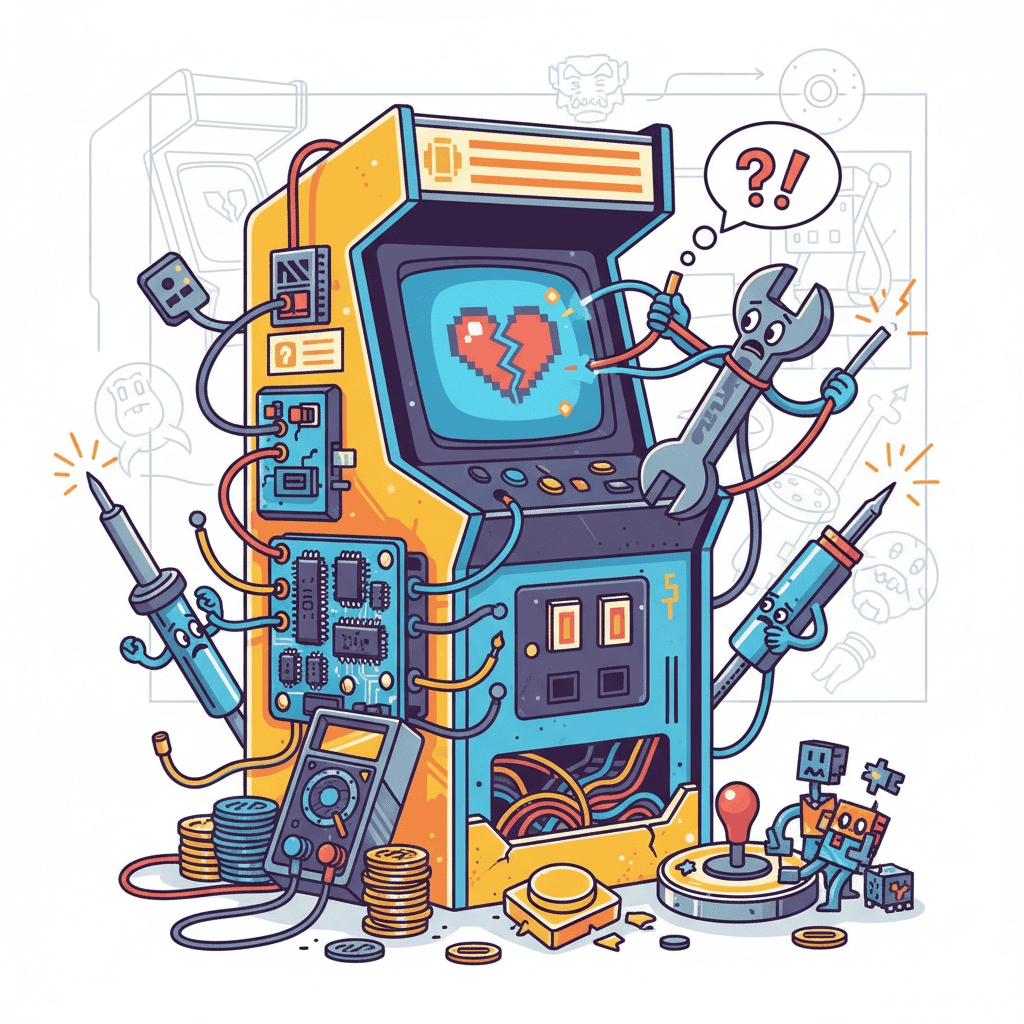
How much does arcade cabinet restoration cost? The cost varies greatly depending on the extent of the damage and the parts needed. It can range from a few hundred dollars to several thousand.
What are the best practices for arcade cabinet restoration? Meticulous documentation, careful disassembly, thorough cleaning, and using quality replacement parts are essential.
How to fix a faulty arcade cabinet? Systematic troubleshooting is critical. Start by checking the power supply, then move to the control panel, monitor, and other components.
What tools do I need to restore an arcade cabinet? Essential tools include screwdrivers, a multimeter, soldering iron, sandpaper, wood filler, and paint. Specific tools will depend on the repairs needed.
How to restore an arcade cabinet step by step? Refer to the step-by-step guide in this article.
Where can I find arcade cabinet repair near me? Search online for “arcade repair” or “arcade restoration” along with your location.
What causes arcade cabinet power issues? Power supply failures, damaged wiring, or blown fuses are common causes.
Key Takeaway: Arcade cabinet restoration is a rewarding but challenging endeavor. Patience, attention to detail, and a good understanding of electronics and woodworking are crucial for success. Don’t be afraid to seek help from online communities and experienced restorers.
Get Started on Your Arcade Cabinet Restoration Project Today!
Now that you’re equipped with the knowledge to tackle common issues and a solid plan of action, it’s time to roll up your sleeves and begin your restoration project. Remember, every restored arcade cabinet is a testament to the enduring legacy of arcade gaming, and your efforts will help preserve this important piece of gaming history for future generations. So grab those tools, gather your parts, and start working towards that pristine, perfectly functioning arcade machine you’ve always dreamed of owning.
Diving Deep into Arcade Cabinet Restoration: A Veteran's Guide
